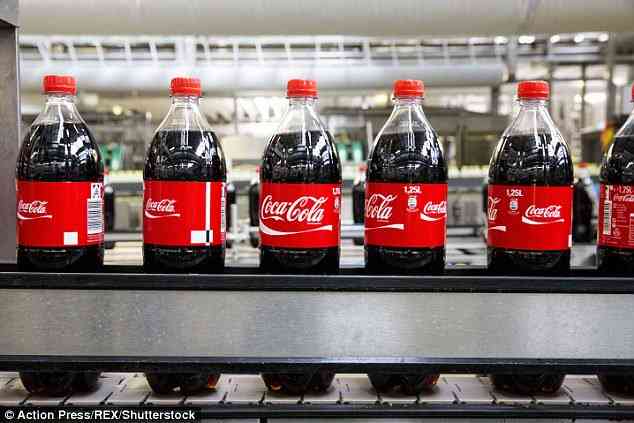
THE turf war between the country’s two major producers of carbonated drinks has brought sweetness to many Zimbabweans, but the same sweetness will sooner rather than later manifest in the bitterness of a long list of health conditions that result from the overconsumption of sugar.
In a country where every fizzy drink, be it Cream Soda, Raspberry or Fanta, came to be known as Coca-Cola, it was always going to be difficult for any competitor to penetrate the market.
Coca-Cola or simply Coke, the flagship non-alcoholic beverage of Delta Beverages, has grown to be one of the world’s strongest brands.
Introduced to Zimbabwe in 1948, it has a quaint history among indigenous people.
Always out of reach of the poor, whenever someone got hold of a bottle, it would be shared among the whole family, each getting at least a full bottle-top.
It was magic only fit for the white man, like ambrosia was for the gods of Mt Olympus.
Not anymore! Now everyone can afford a Coke or any other non-alcoholic beverage for that matter, courtesy of the competition posed by newcomer Pepsi Zimbabwe, whose drinks include Pepsi, Diet Pepsi, Seven-Up, Mirinda Orange, Mirinda Lemon, Mountain Dew, 7Up Evervess Soda and Sting.
Pepsi is taking Coke head-on while the other flavours are grappling with Delta’s Sprite, Pine Nut, Stone Ginger Beer, Fanta and Sparletta in its different guises. All these have sugar content of up to 33%.
- Business opinion: Brand export
- Local authorities struggling
- Schweppes plans to expand solar facilities countrywide
- Chaplin Moyo spearheads corporate pastoral services
Keep Reading
At face value, that’s not such a bad thing because of the price competitiveness.
A standard bottle of Coke goes for US$0,50, while a family size bottle sells for a dollar.
Now Delta has a 2-litre bottle that goes for US$2. Not to be outdone, a litre of Pepsi goes for a dollar and its smaller packages go for a dollar for two or four.
As Zimbabweans in urban areas spend most of the day in the sun hustling and now they have access to these cheap drinks, consuming an average of two litres daily.
Children too love these highly addictive drinks and have easy access.
But here is the problem, and this is why Zimbabwe is sitting on a time bomb.
The World Health Organisation (WHO) recommends consuming no more than six teaspoons of added sugar daily.
But by drinking just one serving of fizzy a day, a person will easily exceed this amount.
A 2015 WHO study attributed 184 000 global deaths each year to the consumption of sugary drinks.
According to experts, sugary beverages are linked to a long list of adverse health effects, starting with obesity, poor blood sugar control and diabetes.
Recent studies have found an association with high blood pressure, high cholesterol and heart disease.
A carbonated beverage can serve as an acid load, which can raise gastric acid volumes.
This wreaks havoc to one's stomach lining and often results in heartburn and further acid reflux symptoms.
Sugary drinks contain fructose, which can only be metabolised by the liver.
When one consumes too much fructose, the liver becomes overloaded and turns the fructose into fat, hence obesity.
Studies have shown that sugary drinks are also linked to kidney diseases, and poor dental and skin health.
Both manufacturers have Coke Zero and Pepsi Zero, which they claim have zero sugar but have artificial sweeteners.
But experts say there is nothing zero about these because they pose health risks too including an increased risk of stroke, heart disease or death.
When the Health ministry starts to grapple with an upsurge in these health conditions in a few years’ time, the beverage manufacturers will be nowhere to be found.
We are already beginning to see obese schoolchildren who have rotting teeth!
Nevanji Madanhire is a senior editor at Alpha Media Holdings










